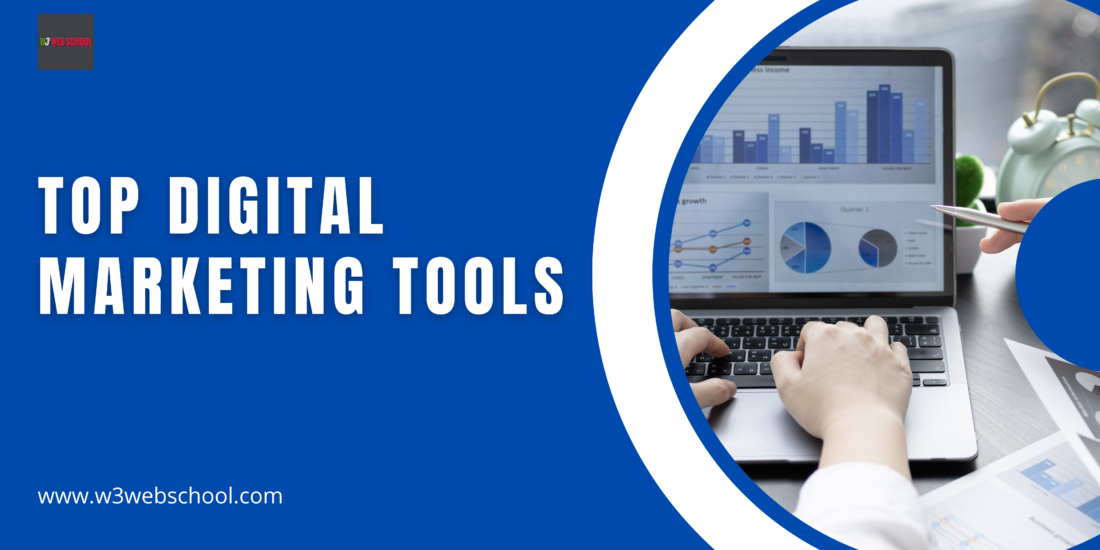
Section 1: Search Engine Optimization (SEO) Tools
Search Engine Optimization (SEO) is the process of optimizing a website or a web page to rank higher in the search engine results pages (SERPs). Here are some SEO tools that can help you with your optimization efforts:
SEMrush: SEMrush is a popular all-in-one SEO tool that provides comprehensive keyword research, site audits, backlink analysis, and competitor research. It helps you track your ranking position for various keywords, monitor your website’s health, and identify technical SEO issues.
Ahrefs: Ahrefs is another popular SEO tool that provides comprehensive backlink analysis, keyword research, and competitor research. It also offers a site audit feature to identify technical SEO issues that can negatively impact your website’s ranking.
Google Analytics: Google Analytics is a free web analytics tool that provides comprehensive insights into your website’s traffic, user behavior, and conversion rate. It helps you track the effectiveness of your digital marketing campaigns and make data-driven decisions.
Google Search Console: Google Search Console is a free tool provided by Google that helps you monitor your website’s performance in the search engine results pages. It provides insights into your website’s indexing status, search queries, and click-through rate (CTR).
Section 2: Pay-per-click (PPC) Tools
Pay-per-click (PPC) advertising is a popular form of digital advertising that involves paying for each click on your ads. Here are some PPC tools that can help you with your advertising efforts:
Google Ads: Google Ads is a popular PPC advertising platform that allows you to create, manage, and optimize your ad campaigns across various Google properties, including Google Search, YouTube, and Google Display Network.
Bing Ads: Bing Ads is Microsoft’s PPC advertising platform that allows you to create and manage your ad campaigns across various Microsoft properties, including Bing, Yahoo, and MSN.
Facebook Ads Manager: Facebook Ads Manager is a popular social media advertising platform that allows you to create and manage your ad campaigns on Facebook and Instagram. It provides targeting options based on demographics, interests, and behaviors.
Section 3: Social Media Marketing Tools
Social media marketing involves using social media platforms to promote your brand, products, or services. Here are some social media marketing tools that can help you with your marketing efforts:
Hootsuite: Hootsuite is a social media management tool that allows you to schedule, publish, and monitor your social media posts across various platforms, including Facebook, Twitter, LinkedIn, and Instagram. It also provides analytics to measure the effectiveness of your social media campaigns.
Buffer: Buffer is another popular social media management tool that allows you to schedule, publish, and analyze your social media posts across various platforms, including Facebook, Twitter, LinkedIn, and Instagram.
Canva: Canva is a graphic design tool that allows you to create professional-looking graphics, including social media posts, infographics, and posters. It provides various templates, images, and design elements to choose from.
Section 4: Email Marketing Tools
Email marketing involves using email to promote your brand, products, or services. Here are some email marketing tools that can help you with your marketing efforts:
Mailchimp: Mailchimp is a popular email marketing platform that allows you to create and send email campaigns, automate your email marketing, and analyze your email performance. It provides various templates, segmentation options, and integration options with other marketing tools.
Constant Contact: Constant Contact is another popular email marketing platform that allows you to create and send email campaigns, automate your email marketing, and analyze your email performance. It provides various templates, customization options, and integration options with other marketing tools.
Sendinblue: Sendinblue is an all-in-one marketing platform that provides email marketing, SMS marketing, and marketing automation. It allows you to create and send email campaigns, segment your email list, and track your email performance.
Section 5: Content Marketing Tools
Content marketing involves creating and distributing valuable content to attract and engage your target audience. Here are some content marketing tools that can help you with your content creation and distribution efforts:
HubSpot: HubSpot is an all-in-one marketing platform that provides content creation, distribution, and analysis tools. It allows you to create blog posts, landing pages, and social media posts, and track your content performance.
CoSchedule: CoSchedule is a content marketing calendar that allows you to plan, schedule, and publish your content across various channels, including social media, email, and blog. It provides collaboration tools and analytics to measure your content performance.
BuzzSumo: BuzzSumo is a content research tool that allows you to find popular content in your industry, analyze your competitor’s content performance, and identify key influencers to reach out to. It helps you create content that resonates with your target audience.
Section 6: Analytics and Reporting Tools
Analytics and reporting tools allow you to measure and analyze your marketing performance, so you can make data-driven decisions. Here are some analytics and reporting tools that can help you with your marketing analysis and reporting:
Google Data Studio: Google Data Studio is a free data visualization tool that allows you to create custom reports and dashboards to visualize your marketing data. It provides various integration options with other marketing tools.
Klipfolio: Klipfolio is a dashboard and reporting tool that allows you to track and analyze your marketing metrics across various channels, including social media, email, and website. It provides various customization options and integration options with other marketing tools.
Tableau: Tableau is a data visualization and analytics tool that allows you to create interactive visualizations and dashboards to analyze your marketing data. It provides various integration options and customization options to suit your reporting needs.
Conclusion
Digital marketing is a complex and ever-evolving field that requires various tools to create and implement a successful marketing campaign. This blog post covered some of the top digital marketing tools that every marketer should know, including SEO, PPC, social media, email, content, and analytics and reporting tools. Using these tools, you can streamline your marketing efforts, measure your marketing performance, and make data-driven decisions to improve your ROI.